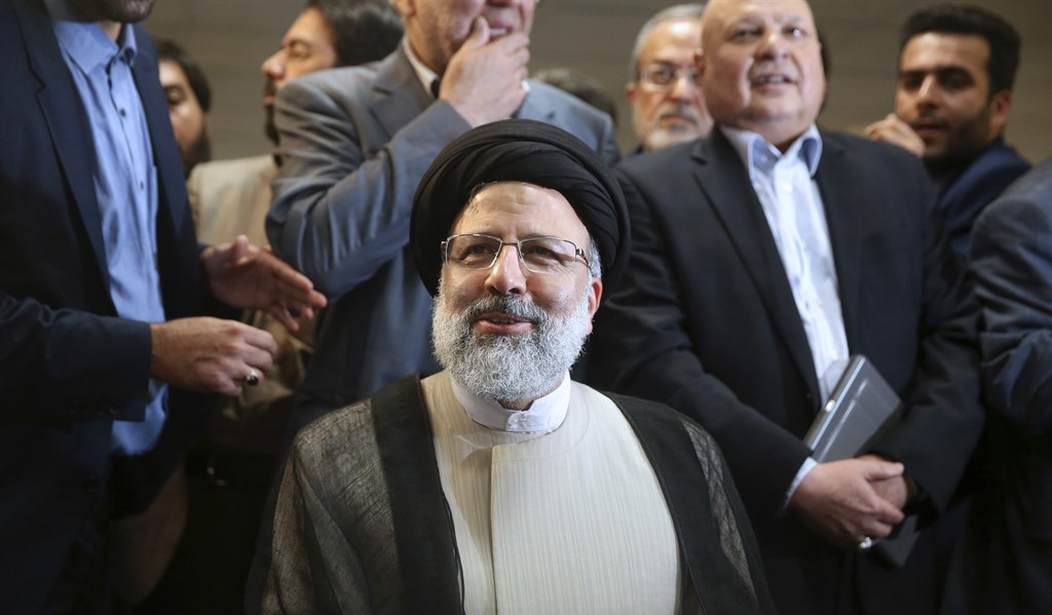On Monday, the soon-to-be-president* of Iran, Ebrahim Raisi, defended his role in the mass execution of political prisoners in 1988, claiming that he has “always defended people’s rights.” On the day Iran announced Raisi would become the next president, Amnesty International called for his investigation for crimes against humanity for the 1988 prison massacres, in which Raisi oversaw the executions of thousands of political prisoners and protesters.
“There are sanctions against you. Human rights organizations say thousands were executed whilst you sat on a committee that oversaw those executions in 1988. On the day you were elected, Amnesty International said you should be investigated for crimes against humanity,” an English-speaking reporter asked Raisi. “Do you think that these issues will be difficult for you when you interact with world leaders, especially western leaders?”
“From the start of my responsibility as a legal professional I’ve always defended people’s rights,” Raisi insisted.
“We should say to those who make accusations today, ‘We are the ones who should be making claims as those who speak up for human rights,'” the soon-to-be-president insisted. “Everything I’ve done in my time of holding office has been to defend human rights. In the face of those who disrupted people’s rights and engaged in Daeshi [ISIS-type] and anti-security moves, in the judiciary as a legal expert and as a judge, I have always stood up for people’s rights and defended human rights.”
“If a legal expert, a judge, or a prosecutor has defended the rights of people and the security of the society, he must be lauded and encouraged for preserving the security of the people against assaults and threats. I am proud that in my role as a prosecutor wherever I was I have always defended people’s rights, security, and tranquility,” Raisi declared.
Ibrahim Raisi defends his role in the #1988Massacre of thousands of political prisoners in Iran:
"If a legal expert, judge or prosecutor has defended the rights of people and the security of the society, he must be lauded and encouraged."#RaisiMassMurderer
CC: @UNHumanRights pic.twitter.com/3n4M0sJXq2
— M. Hanif Jazayeri (@HanifJazayeri) June 21, 2021
This may mark the first time that Raisi has publicly addressed his role in the 1988 executions. In these remarks, he appears to have confirmed his role in the prison massacre.
According to Amnesty International, Raisi was a member of the “death commission” that carried out the “enforced disappearance and extrajudicial executions of several thousand political dissidents in Even and Gohardasht prisons near Tehran between late July and early September 1988. Victims’ bodies were mostly buried in unmarked mass graves.”
The death toll remains unclear. Then-Supreme Leader Ruhollah Khomeini’s deputy, Hussein-Ali Montazeri, put the number between 2,800 and 3,800 in his memoirs, but an alternative estimation suggests the number exceeded 30,000.
Raisi rose in the judicial ranks, serving as prosecutor of Tehran between 1989 and 1994, the first deputy to the head of the Judiciary from 2004 to 2014, the prosecutor general of Iran from 2014 to 2016, and then head of the judiciary from 2019 onward. Amnesty International has faulted Raisi for the “arbitrary arrests of thousands of peaceful protesters, dissidents, human rights defenders and members of persecuted ethnic and religious minorities” since 2019.
Recommended: Hamas Leader Thanks Iran, Pledges to Keep ‘Fighting For Jerusalem’
The fact that Raisi has the gall to claim that he has “always defended people’s rights” despite this horrific record is utterly beyond the pale.
*Technically, Raisi’s title is “president-elect,” but the “election” was rigged from the start. The Guardian Council, hand-picked by Supreme Leader Ali Khamenei, disqualified any candidate who had the potential to mount a real challenge to Raisi. Regardless, Raisi will become president, so I have referred to him as the “soon-to-be-president.”









Join the conversation as a VIP Member